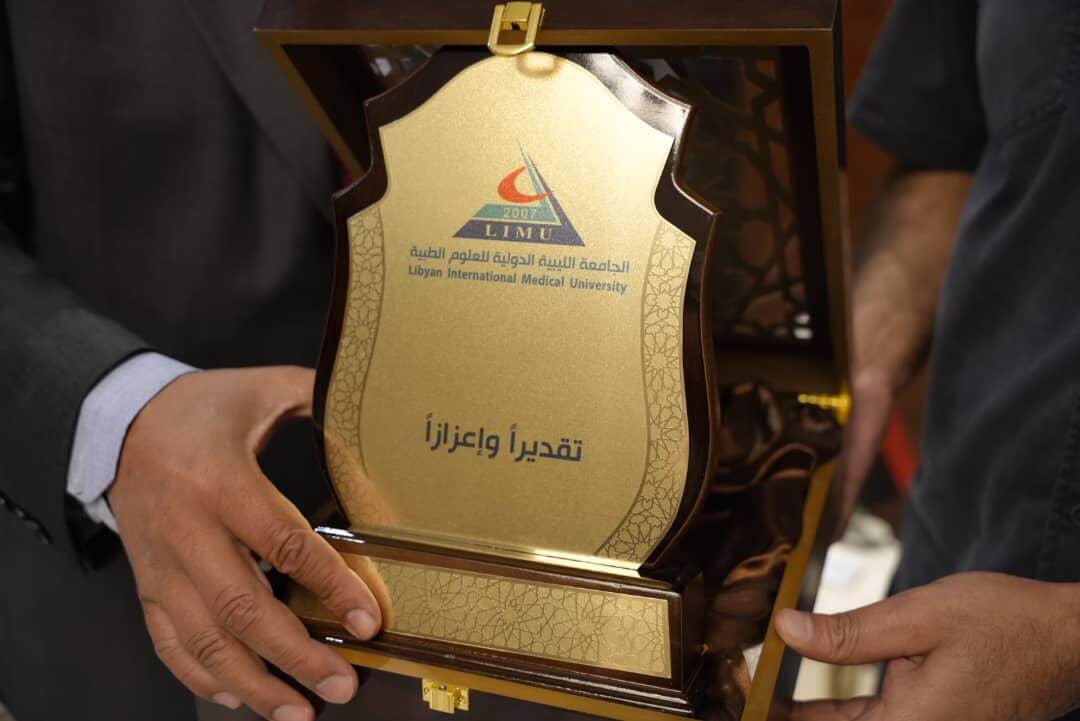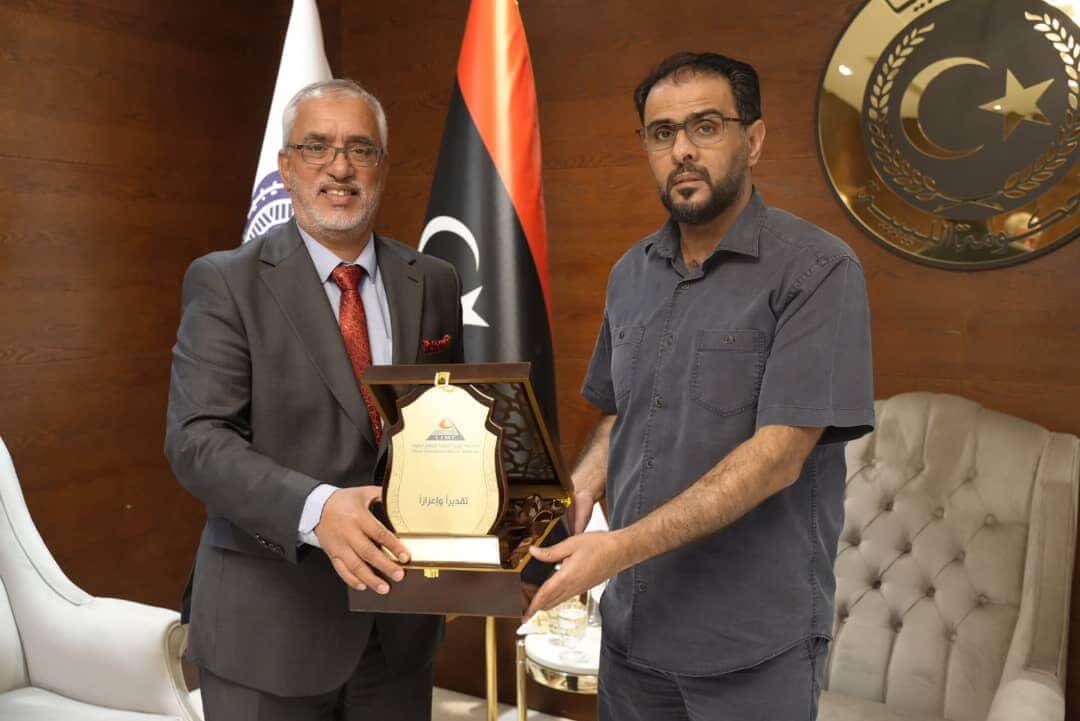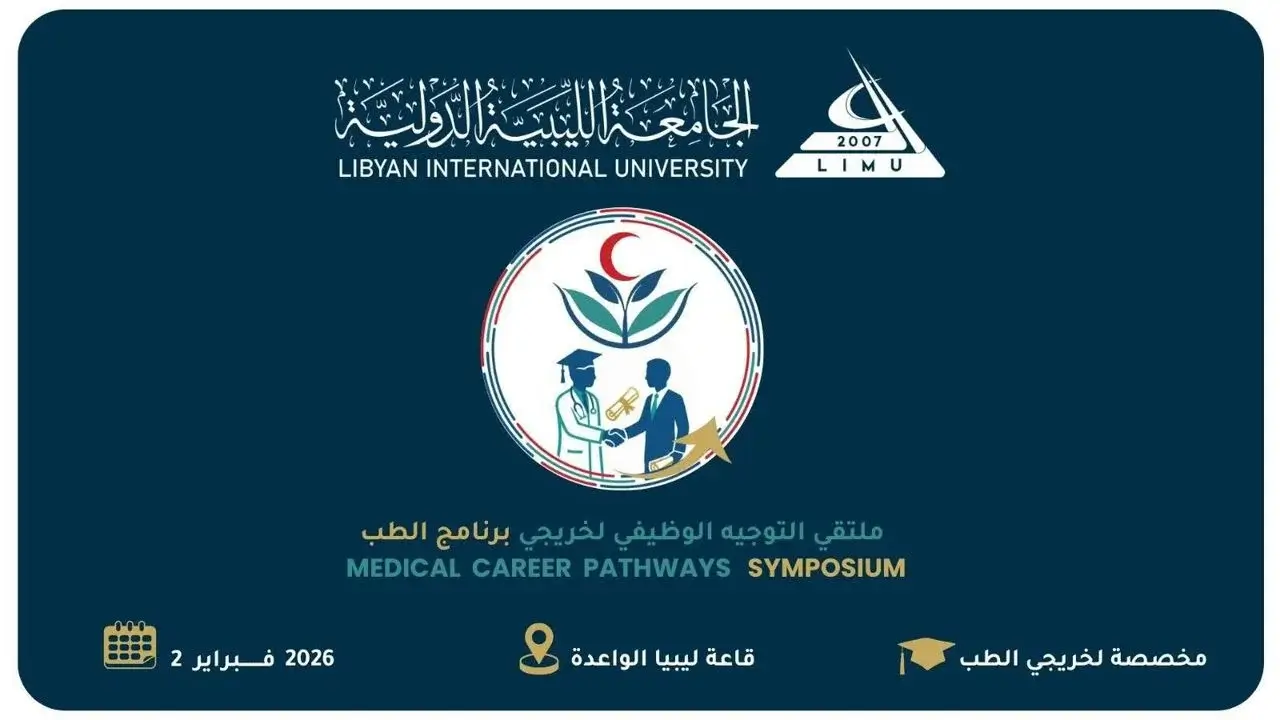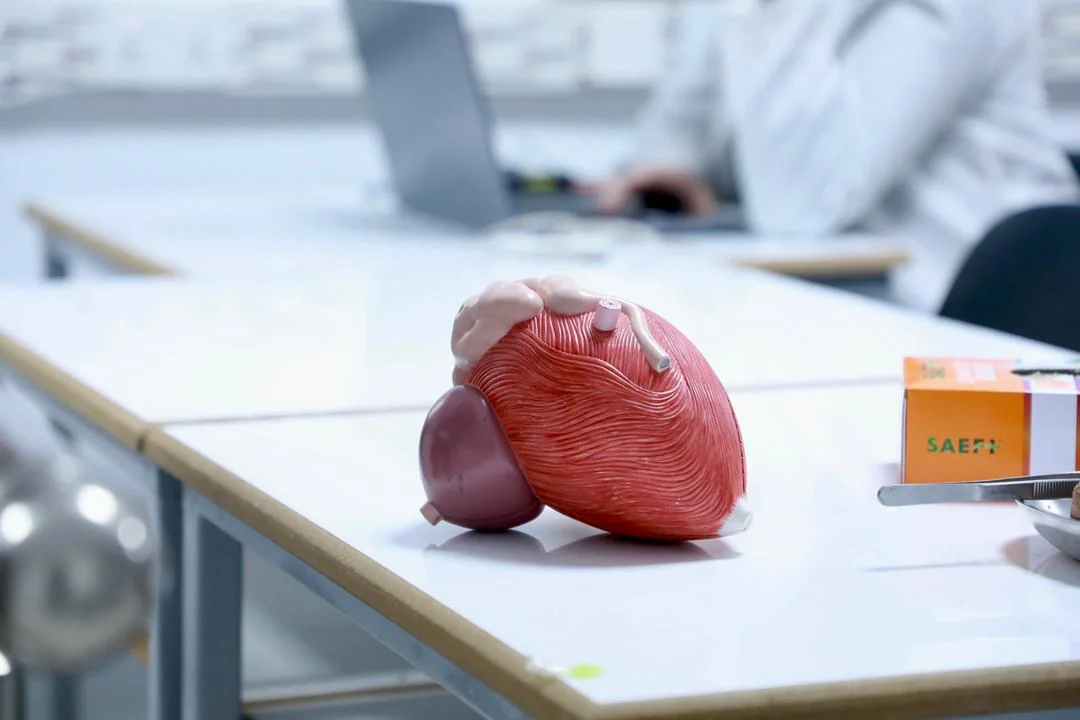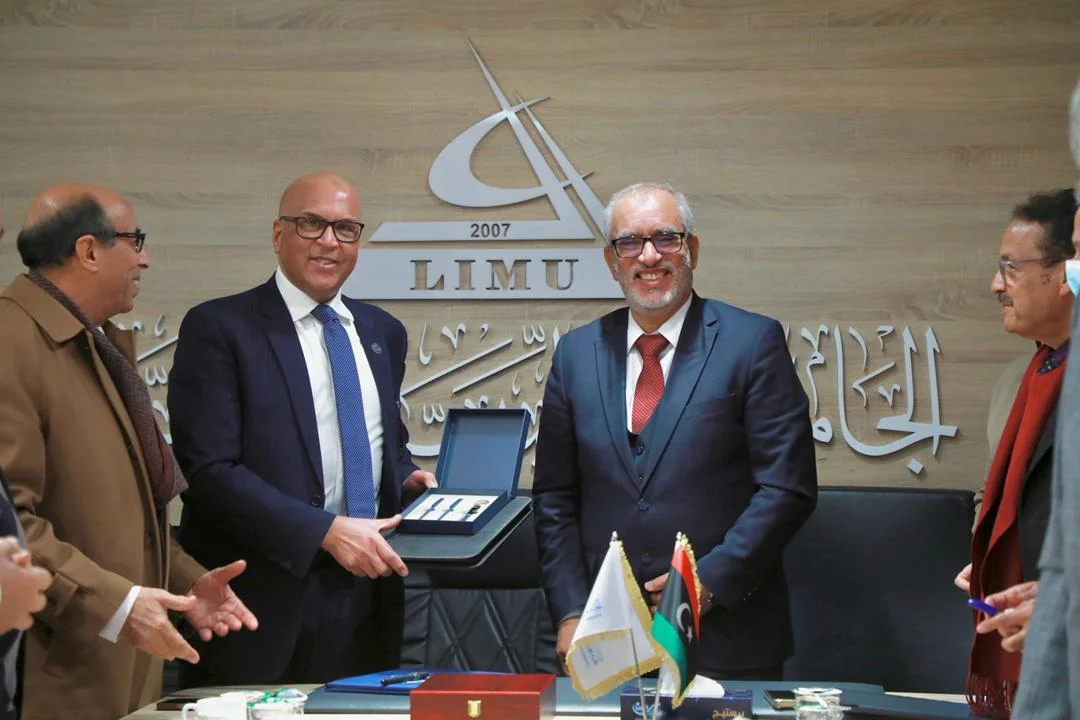On Tuesday afternoon, August 13, 2024, Prime Minister Dr. Osama Hammad received Dr.
Mohamed Saad, President of the Libyan International University, in his office. The
meeting was held to review the progress made at the Libyan International University
and to congratulate the institution on its achievements, international accreditations, and
high-level outputs.
Dr. Hammad expressed the government’s interest in higher education and the distinguished
private sector. He conveyed his desire to support the university and contribute to its
development, as well as to explore the development of a genuine partnership between the
public and private sectors.
In appreciation of the Libyan government’s efforts in bringing about an urban renaissance
witnessed in many stable cities flourishing with reconstruction, alongside the focus on
education issues and work on development and quality improvement, the University
President presented the Libyan International Medical University shield to the Prime Minister.
The Prime Minister expressed his gratitude for this recognition from an academic institution
that he holds in high regard and respect.
This meeting highlights several important points:
- Recognition of achievements: The government is acknowledging LIMU’s
accomplishments, particularly in obtaining international accreditations. - Government support for education: The Prime Minister’s interest indicates the
government’s commitment to supporting higher education, including private institutions. - Public-private partnership: There’s an expressed desire to develop stronger partnerships
between the public and private sectors in education. - Urban development: The university’s recognition of the government’s efforts in urban
reconstruction suggests a broader context of development in Libya. - Mutual respect: The exchange of recognition (the meeting itself and the presentation of
the university shield) demonstrates a positive relationship between the government and this
academic institution.
This interaction between the government and a leading private university suggests a positive
direction for higher education in Libya, with potential for increased collaboration and support
in the future.
